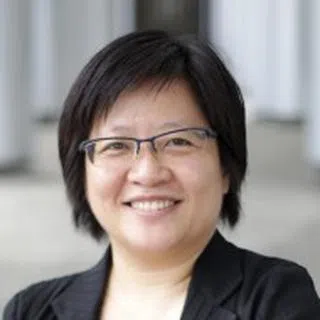Xi-Putin meeting in Uzbekistan: China pulling back from Russia
China seems to be pulling back while Russia wants to take a step forward, as seen from the Xi-Putin parlay at their meeting in Uzbekistan. But the delicate dance is not only at the surface level of the Ukraine war, but China's deeper strategic goals in Central Asia, where Russia considers itself a dominant power.
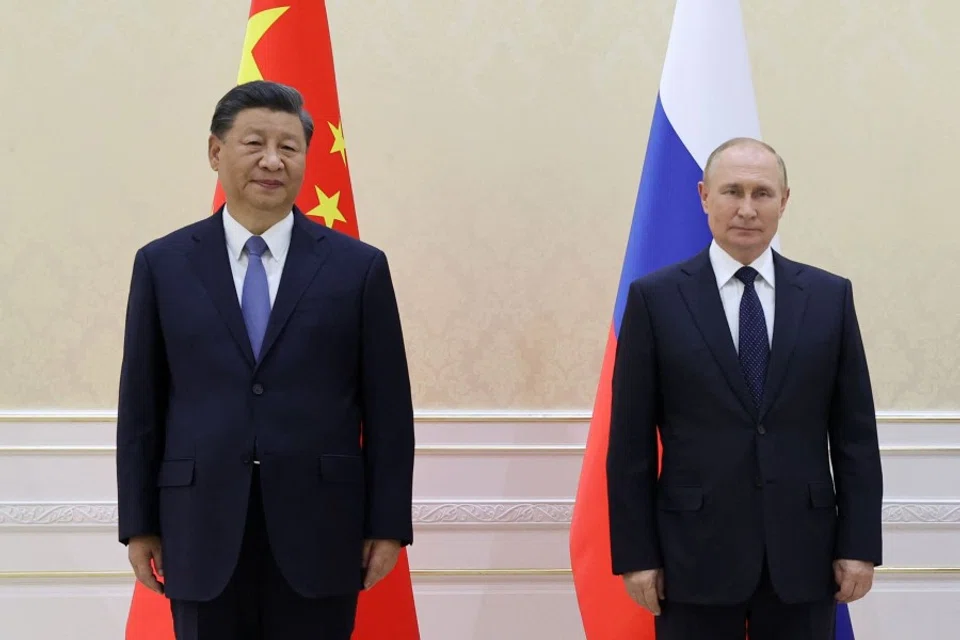
After seven months, Chinese President Xi Jinping and Russian President Vladimir Putin have met again, this time in Uzbekistan, but the circumstances are very different from when they last met at the opening of the Beijing Winter Olympics.
At the time, the world was still speculating about whether Russia would invade Ukraine. China was under pressure from the US and other Western countries, and was working hard to get close to Russia, announcing "no limits" to bilateral relations. Now, the war in Ukraine is ongoing and Western countries see Putin as a public enemy who has broken international rules. He is facing unprecedentedly harsh sanctions and is not doing well on the battlefield of late, beating a retreat.
... there are clear signs that China-Russia relations are not as warm as before, and have actually cooled somewhat.
The most important difference is that Putin needs China even more now. Some commentaries say that Putin is at his most fragile since the start of the war in Ukraine, and will see China as a lifesaver. China sees through this and is carefully navigating the delicate situation. On the one hand, China has to stand "back to back" with Russia as strategic partners, because if Russia falls, Western countries will focus on China; on the other hand, if it overtly gives military or economic support to Russia, that would lead to Western sanctions against China, which would not be good for China's strategic plans in Central Asia.
Russia on the approach, China on the retreat
For China, the current situation is both dangerous (危) and an opportunity (机) - the Chinese characters for crisis (危机).
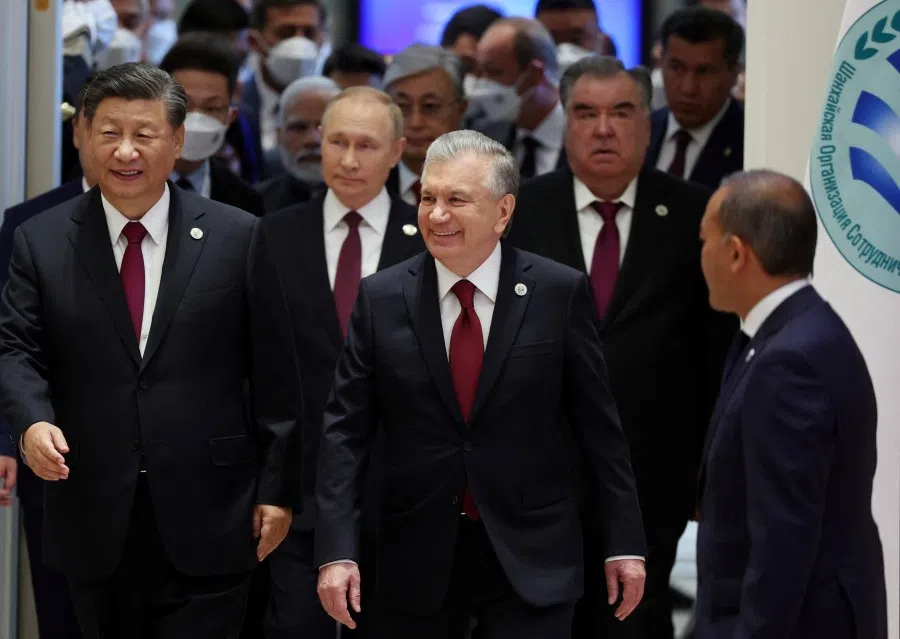
In fact, there are clear signs that China-Russia relations are not as warm as before, and have actually cooled somewhat. For example, last week Russia disclosed that Putin and Xi would meet in Uzbekistan during the Shanghai Cooperation Organisation (SCO) summit, but up until 13 September, China's foreign ministry did not confirm a meeting.
China is also interested in building an international geopolitical framework that is not led by the West, but Russia's role in this is another question.
Putin clearly needs the meeting more for domestic publicity to shore up his profile and highlight that Russia still has China's support. The Kremlin also told the media that the SCO provides an alternative to Western-centric organisations. China is also interested in building an international geopolitical framework that is not led by the West, but Russia's role in this is another question.
In the first half of this month, Li Zhanshu, chairman of the Standing Committee of the National People's Congress and the third-highest-ranking member of the Politburo Standing Committee, visited Russia, but the statement from the Chinese authorities never mentioned Ukraine, while the statement from Russia's Duma highlighted that China expressed "understanding" and "support" for Russia's actions in Ukraine. One video on Twitter shows Li saying to Duma chairman Vyacheslav Volodin that the US and NATO are at Russia's doorstep. "We fully understand the necessity of all the measures taken by Russia aimed at protecting its key interests; we are providing our coordinated support (策应)."
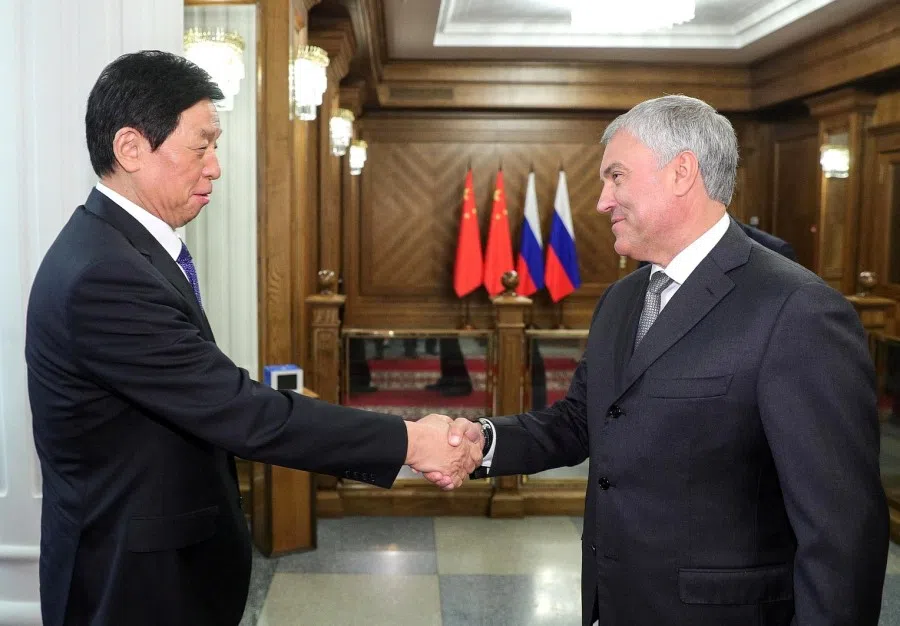
Some netizens feel this confirms China supports Russia starting the war. However, "understanding" and "coordinated support" is already lowering the bar. On 12 September, Director of the Office of the Central Commission for Foreign Affairs Yang Jiechi met outgoing Russian ambassador to China Andrey Denisov saying that China will work with Russia to make the high-level strategic coordination between the two countries more concrete and substantive - the implication is to just operate well at the current level.
Yet, as the more powerful country, China will not become a proxy for Russia's interests, but will defend its own multifaceted interests.
A cautious China
In fact, since Russia invaded Ukraine, China has adopted an ambiguous or so-called "balanced" stance and has refrained from providing military aid to Russia. Otherwise, Russia would not have sought arms from Iran and even North Korea recently. Undoubtedly, China also provides actual "coordinated support" for Russia, such as the new energy agreement to start paying for gas in rubles and RMB instead of euros. Yet, as the more powerful country, China will not become a proxy for Russia's interests, but will defend its own multifaceted interests.
Evan A. Feigenbaum, vice president for studies at the Carnegie Endowment for International Peace, analysed that Beijing's goal is "to preserve its entente with Russia at the strategic level, to counterbalance American power and growing economic pressure on China from the West. But it wants to do this without having to back Moscow at the tactical level, since it also benefits from preserving global market access, avoiding Western sanctions, and building relations with countries, like those in Central Asia, that are terrified of Russia."

We must remember that the Central Asian countries and Ukraine are former Soviet republics that live in fear of Russia, and are all closely watching how China-Russia ties are growing. Observably, the Xi-Putin summit is not the biggest highlight of Xi's first post-Covid overseas trip - it is how China's Central Asia strategy will play out.
... Russia is the original head honcho of Central Asia and is wary of China's growing influence there.
Central Asia strategy the one to watch
This is reflected in the fact that Xi expressed his deep unease over Russia's invasion of Ukraine at his first stop in Kazakhstan, openly distancing China from Russia and drawing closer to the West. When Kazakh President Kassym-Jomart Tokayev met Putin in June, he unexpectedly asserted that Kazakhstan will not recognise the self-proclaimed independence of the Donetsk and Luhansk regions of Ukraine.
China has been deepening its relations with Central Asia for over two decades. In 2001, China was a founding member of the SCO along with Russia and four other Central Asian countries with aims including fighting terrorism, separatism and extremism. Thought of as a coalition of "unfree regimes" by the West, the SCO has become increasingly influential in the international geopolitical arena in recent years. In 2017, India and Pakistan became members of the SCO. As Iran becomes a full member of the SCO next year, the organisation will cover around 44% of the world's population and account for a quarter of global GDP.
Clearly, China is adopting a two-pronged strategy, and striving to strike a balance between geopolitical interests and its own political needs to realise its self-interests.
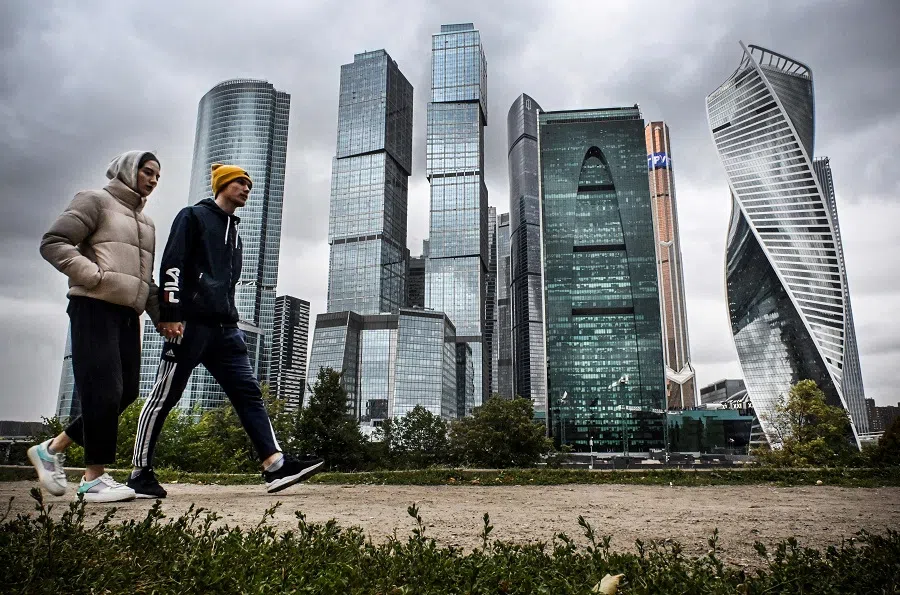
However, Russia is the original head honcho of Central Asia and is wary of China's growing influence there. Now that Russia is at war with Ukraine, China has an opportunity to forge ahead. This can be seen from developments on the China-Kyrgyzstan-Uzbekistan railway construction project. Planned for 25 years and a project that was always opposed by Russia, it is finally making headway after the three countries signed a cooperation agreement on 15 September.
Clearly, China is adopting a two-pronged strategy, and striving to strike a balance between geopolitical interests and its own political needs to realise its self-interests. However, great power politics will also become increasingly complex. For example, while India is a member of the US-led Quad alliance, it disregarded Western sanctions and imported large quantities of Russian oil, and has recently chosen not to join the trade pillar of the Indo-Pacific Economy Framework for Prosperity (IPEF). This behaviour is not only confusing to everyone but also poses a big headache for the West.
Related: Xi Jinping embarks on Central Asia visit amid a changed world | Will China and Russia join hands to push for an alternative world order? | China's softening stance on its 'no limits' relations with Russia | China must reflect on its third-party position in the Russia-Ukraine war | Will China condemn Russia over reports of war crimes in Ukraine?
